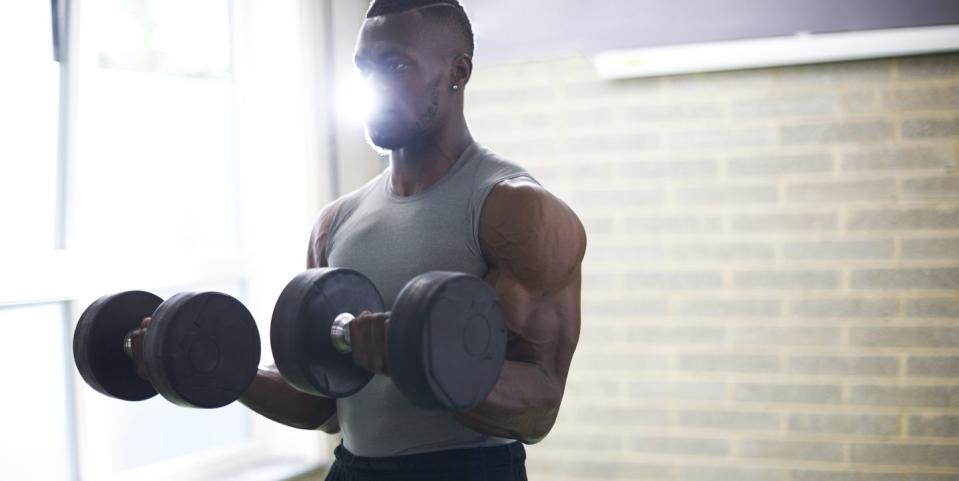Bodybuilding Legend Dorian Yates Dispels Muscle-Building Myths

Building muscle is the name of the game for bodybuilding, so it goes without saying that a six-time Mr. Olympia winner like Dorian Yates is an expert when it comes to designing a training plan for packing on mass. The 59-year-old retired competitor, who won his titles from 1992 to 1997, recently took to YouTube for a quick segment to dispel some myths about the sport—specifically, those related to how people should work out to build more muscle.
Yate's advice comes in the form of responses to common questions. The first asks if lifting heavy weights is necessary for building muscle. The answer, according to Yates, is much more nuanced than this simple query.
"It is true to a degree, but heavy is a relative term," he says. "Heavy for one person might not be heavy to the other person." Put simply, you might not have the same results as your gym buddy when you both put 225 pounds on the barbell for benching. One of you might not even be able to eke out more than a few reps, while the other treats two plates like a breeze.
But weight isn't the only variable for workouts. As Yates explains, the number of reps you perform also affects the results of your training. "Lifting for low repetitions—two, three, four repetitions—that's okay for building power, for building strength, but it is not effective for building muscle." To train for hypertrophy, the process that builds muscle, many experts recommend sets with six to 12 reps using moderate weights, especially for gym newbies. Yates agrees. "Yes, you need to use heavy weights, you need to be progressive, but within the boundaries of doing the exercises properly: Controlling the weight, controlling the negative, moving for a full range of motion, and keeping the time under tension to a certain point," he says. "Over the years, we've worked out that using correct form, correct pace, somewhere between six and 12 repetitions are the best range for building the muscle."
If your form breaks down before you've finished your reps, that's probably a sign that you're using too much weight. Instead, you should to only advance up to heavier weight once you can easily manage a working set easily without your form flagging. That's the principle behind progressive overload, which Yates recommends as a method for muscle growth.
The next question asks if strength training hampers flexibility. Yates responds that it can, if you don't focus on performing exercises through a full range of motion.
"If you're doing short, partial movements, your body gets used to moving in that range of motion," he says. "If you do full range, full stretch, full contraction movements, weight training won't decrease your flexibility." There is a time and place for partial reps—but if you only work within that limited ROM, you might find yourself with a problem.
You Might Also Like

